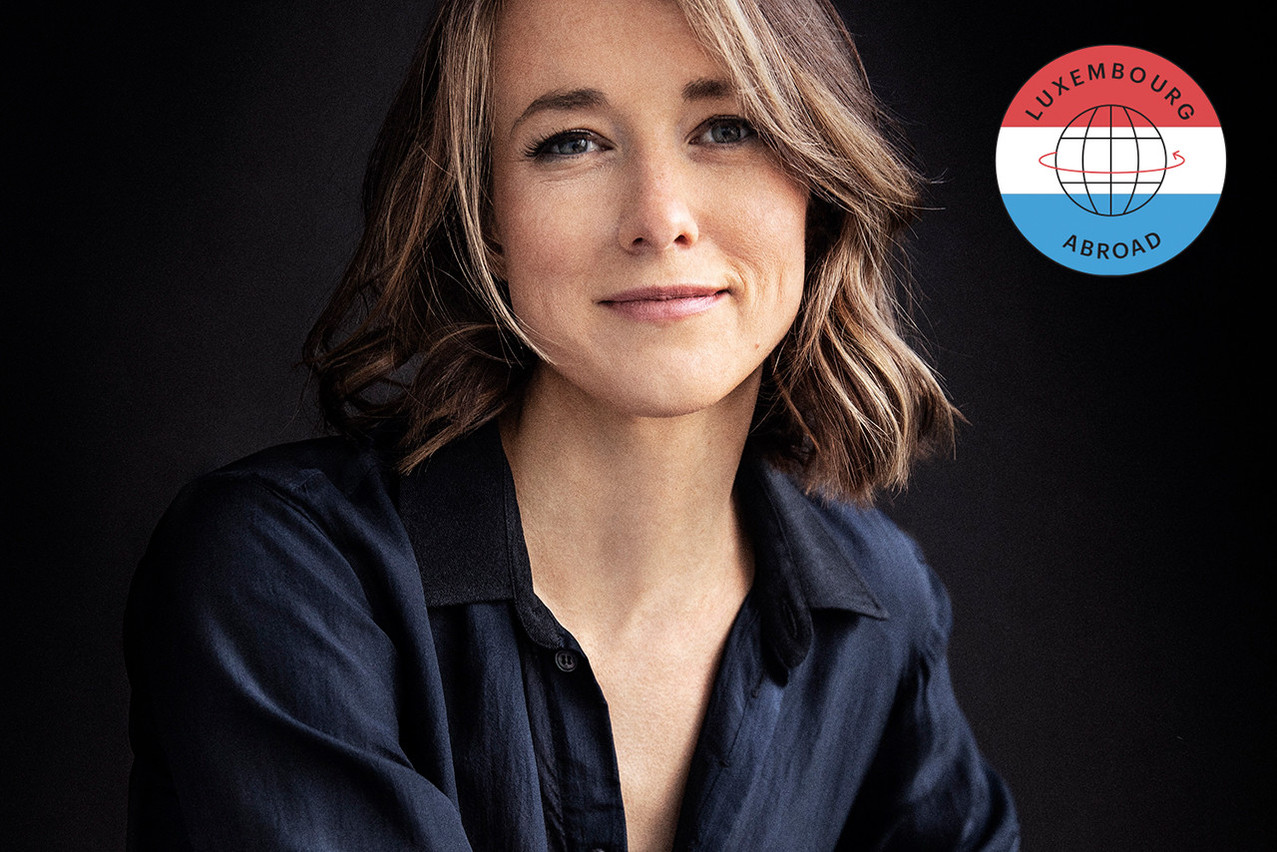So what’s the winning concept behind Eon?
The technology makes it possible for customers to scan a product’s unique QR code--on a shirt, shoe or bag, for example--and immediately get a snapshot about the product’s lifecycle: Where were its materials sourced? Is it an authentic label? What could the garment be styled with? What is its resale value? It’s a tool that’s not just useful with new purchases, but it gives a back story and authentic voice to each unique item, also powerful for secondhand items (see video below for a glimpse into how it works).
Franck, who is New York City-based and has Luxembourg nationality through her father, says she wasn’t initially interested in fashion, although she later fell in love with the “story and value and creativity that goes into each and every product, and to have to embed that integrity within products and give every product a voice and ensure that product could be stewarded through a sustainable, transparent and circular lifecycle through an ID.”
She started the concept seven years ago. She had intially been studying smart cities and urbanism. “That led me into an obsession with products and utility, and how we use and interact with the world around us,” she explains. “Ultimately, it felt that the key to unlocking that utility was to enable the identity of each and every product.”
Brands such as Chloé, Coach, Nanushka, H&M and others have already taken interest in the technology. Take Chloé, for example, which has been B Corp certified since October 2021: customers can scan a unique QR code of bag, for example, and learn about the product’s environmental impact, ownership, material details, etc. Of course, there’s also a feedback loop so that brands can get information on how many times a product is scanned, where the scans took place, etc.
Growth trajectory
Although Franck started off solo, today she’s working with a team of around 35 people. Eon currently has around 20 entreprise clients on the platform, “some of the largest global brands in the world and a really large partner ecosystem of connected applications that are driven into the product cloud,” Franck adds.
The praise for Eon’s technology is in no short supply: Net-a-Porter’s founder Natalie Massenet has called the company “the world wide web of products.”
In 2022, Franck made it onto the inaugural Vogue Business 100 Innovators list, selected as one of the top innovators in the tech and Web3 category. “Behind the rise of resale, rental and recycling in fashion is a network of digital product IDs that make these next-gen circular business models possible,” wrote. “At the forefront of the connected products movement is Natasha Franck.”
And Franck says she never imagined her work would take her to King Charles III. “That was quite an honour. Basically, HRH has stewarded an incredible, global collaboration across leading industry verticals, and each of those verticals has an executive committee with CEOs that are brought together,” she explains. The fashion vertical brought together a wide range of brands--from Stella McCartney to Burberry (see below). Franck says she was “honoured to be really the only kind of technology solution provider there” but also to see how the brands were commited to the digital ID solution. The royal, she adds, was “really instrumental in building that coalition to enable those brands to commit.”
Eon will likely continue its growth trajectory, and not just for the recent wins: in March 2022, the European Commission outlined its Ecodesign for Sustainable Products Regulation, which expands on current ecodesign rules to a wider range of consumer products, highlighting digital product passports (DDP) as part of this. The Commission noted that in 2021, circular design concepts saved “€120bn in energy expenditure for EU consumers and led to a 10% lower annual energy consumption by the products in scope.”
The DDP agenda aims to track consumer goods and would ease the efficiency of information transfer over value chains, improving circularity and sustainability. Eon is a technology advisor to this Commission initiative. While some clients previously had told Franck they like the technology but they don’t need it today, Franck says now “they’re preparing for that legislation.”
And, although Franck regularly travels back to the grand duchy to visit family in places like Steinsel, when asked whether she’s yet working with a Luxembourgish label, she answered, “We are not--and we need to be!”
